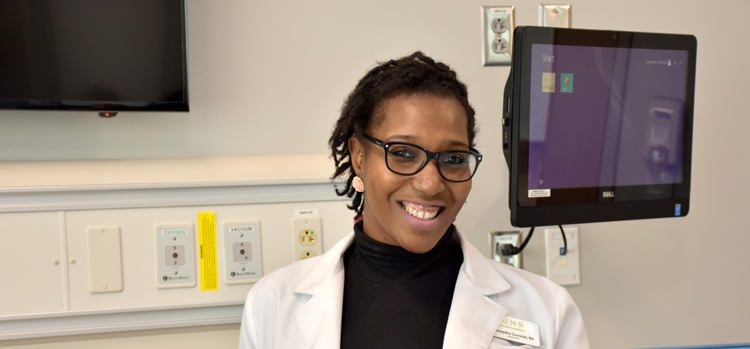Having a flexible option to earn an Associate Degree in Nursing was a game-changer for Keneysha Cornish.
Cornish, assistant director of nursing and staffing development coordinator at Midlands Health and Rehabilitation Center in Columbia, was working as a licensed practical nurse at Broad River Correctional Institution when she joined the ADN FLEX program in 2018.
“One day while I was at work, I fell into seizures epileptic – that’s when you don’t stop having seizures,” she said. “I was in the hospital for a week. Four of those days, I was on life support.”
Her illness occurred a week before the summer semester started. She had a test scheduled for the first week back in school.
“Because the tests were online, I could take it from home,” Keneysha said. “The flexibility of the ADN FLEX program made sure my medical emergency did not stop my academic progress. I was able to continue the program without missing a beat.”
Keneysha said even though she was working and going to school, she was still able to fulfill her commitments as a wife and mother of then 3-year-old twins.
“I was able to be home with my children at least two days a week,” she said. “I had time to study, and only had to physically go to school on Thursdays and clinicals one day each weekend. The classes were recorded, which was great because you could stop, go back and listen again if you didn’t catch something the first time.”
Keneysha, who also earned her Practical Nursing diploma from OCtech in 2011, is currently working toward a Bachelor of Science in Nursing online from Western Governors University in Utah. She hopes to one day earn a doctorate in nursing education.
“It was good to be in a program where everybody was already a nurse,” Keneysha said of the ADN FLEX program. “You could relate to each other. And the classes were small, so that one-on-one attention was really helpful, too.”
“The name OCtech carries a lot of weight in the healthcare community,” she added. “It costs less to attend than a four-year college, and you get more hands-on experience. What you learn one day in the classroom, you get to go and actually see another day during clinicals. That makes the knowledge stick.”


